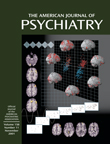Beginning with his biography of Karen Horney in 1994
(1) Bernard Paris, a professor of English at the University of Florida, has taken Horney’s work as his special field of study, bridging literary theory and psychoanalysis. Paris has applied Horney’s unique psychoanalytic thinking about character to literary criticism; in
Imagined Human Beings: A Psychological Approach to Character and Conflict in Literature (2), he presented analyses of several fictional characters from her perspective. Over the years, he has done the sort of archival and bibliographical work on Horney that a major literary figure deserves, and his last two collections of her papers are the result. In a volume published a year before this one
(3), he presented lecture notes, unpublished or obscurely published articles, and reconstructed lectures by Horney on the subject of psychoanalytic therapeutic technique. In this book he has collected and annotated similar material that includes some of Horney’s early essays on the subject of femininity and women’s development and psychopathology as well as a number of essays and lectures that trace the development of her “mature work” (Paris’s term).
Horney was among Freud’s early students and was one of the founders of the Berlin Psychoanalytic Institute. She was also an early critic of Freud’s theories of feminine development and the connection between castration anxiety and fantasies and passivity in women’s character structure. Her ideas were singled out by Freud, and she may be the only woman he names in one of his papers as a dissident who should be corrected. Many of her early essays on feminine development were translated into English and have been available for several years in a single volume
(4). Several of the essays that Paris includes in this book are translated into English for the first time and show some of the development of Horney’s thinking on the subject from a time when she thought more along what came to be considered classical Freudian lines.
The first section of the book is valuable from a historical point of view. Paris points out that Horney’s thinking about women culminated in her address to the National Federation of Professional and Business Women’s Clubs in 1935 titled “Woman’s Fear of Action,” which Paris had included as an appendix to his biography of Horney
(1). Paris says that “this talk best explains why Horney stopped ‘bothering about what is feminine.’ She had reached the conclusion that all ‘we definitely know at present about sex differences is that we do not know what they are’ ” (p. 13). Horney’s thinking about women anticipated much of the work of more modern feminist critics of psychoanalysis but has been largely ignored for a long time, probably because of her later dissent and expulsion from mainstream psychoanalysis.
The remainder of this volume includes a miscellaneous collection of essays, lecture notes, and fragments in which Paris observes the development of Horney’s mature thinking about personality development and culture: “It represents Karen Horney speaking in her distinctive voice and developing her own theory” (p. 159). Paris includes here the letter written by Horney, Harmon S. Ephron, Sarah R. Kelman, Bernard S. Robbins, and Clara M. Thompson when they resigned from the New York Psychoanalytic Society in 1941. The central concept in this letter is a timeless statement that applies now as well as ever not only to psychoanalysis but to all of psychiatric education:
Education in any field consists in a passing on from an older to a younger generation of the truth that the older generation believes it has learned, as well as a bequeathing to the younger generation of the problems left unsolved by their elders. In psychoanalysis as it is today, we cannot afford to subject the younger generation to any dogmatism; we should not mislead it with the illusion of certainty, where none actually exists. (pp. 304–305)
In summary, this book represents the work of a dedicated literary researcher and bibliographer. Paris’s introductions to the two sections not only summarize the papers included but also present the development of Horney’s thinking in a concise and scholarly manner. The book will be most valuable to those who already have an interest in Horney’s work and want to see how her thinking developed. Those of our colleagues who want to make an acquaintance with her thinking would be best referred to her final book,
Neurosis and Human Growth (5), which Paris notes represents her most mature thinking and which I would recommend to anyone as a very readable text and a useful one to any therapist who wants to work psychodynamically.

